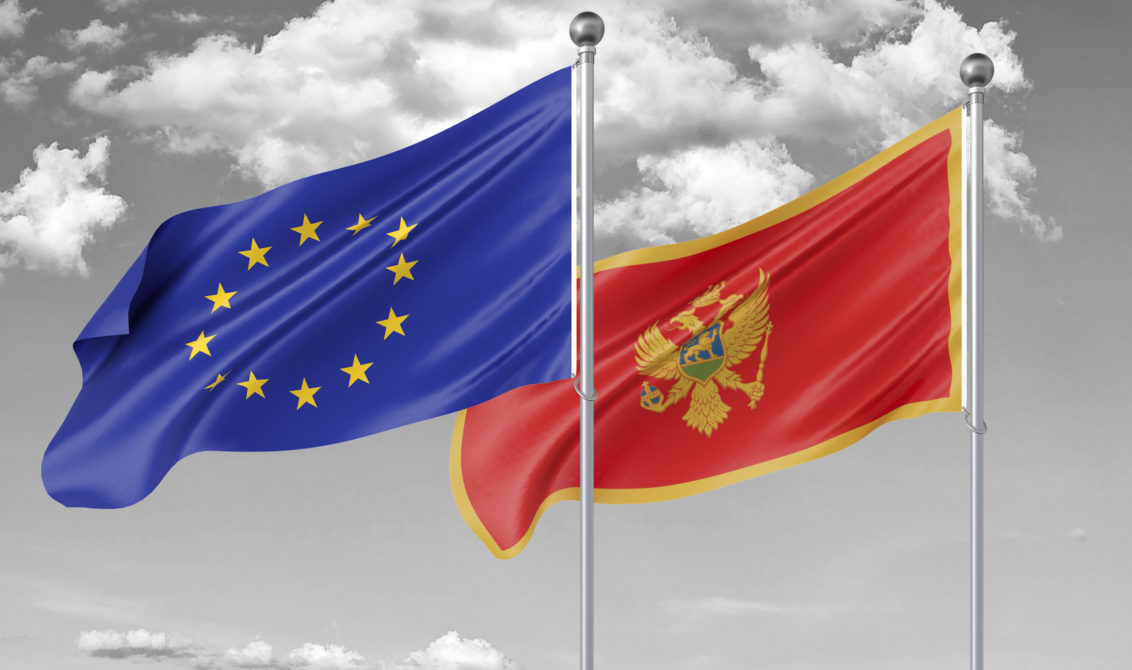Original article (in Montenegrin) was published on 9/1/2025; Author: Jovana Đurišić
Montenegro has been negotiating with the European Union for over a decade, and it seems that negotiations gained momentum last year when things began moving forward after a long stalemate. While the government (un)justifiably attributed the credit for this European progress to itself, some have blamed the previous thirty-year-long administration, led by the Democratic Party of Socialists (DPS) and Milo Djukanovic, for the stagnation on the European path.
Numerous Montenegrin media outlets, such as Vijesti (Archived), Dan (Archived) RTCG (Archived), Gradski portal (Archived), Borba (Archived) IN4S (Archived), RTNK (Archived), published information claiming:
“Montenegro under Djukanovic’s rule could not join the EU, whereas membership is now realistically expected.”
This news was attributed to the renowned Brussels magazine EUobserver.com, which reports on European affairs.
We also found these texts shared on Facebook in the following posts (1, 2, 3, 4, 5, 6).
The published texts were reproduced from the Serbian news agency Beta, which, in an article titled “Analyses in the EU: The Western Balkans Are Still in the Waiting Room for Membership but Closer to the Door” (Archived), summarized reports from EUobserver and the Brussels-based magazine Politico, along with alleged journalist insights claiming that the EU Council did not support Montenegro’s accession while Djukanovic was in power.
This refers to a part of the text stating that “informed officials in the EU Council of Ministers had previously indicated that Montenegro could not become an EU member while Milo Djukanovic was in power.” However, these claims cannot be found in EUobserver’s analysis, nor is the former president of Montenegro mentioned anywhere in the analysis.
What does the EUobserver article actually say?
In the published analysis titled “What 2025 holds for EU and Balkans” (Archived), it is highlighted that, in addition to current member states, Brussels can recognize and reward the progress Montenegro has made in recent years by setting a date for its accession to the bloc.
“With Podgorica’s ambitious goal of accession by 2028, both the EU and Montenegro will have to move quickly in order to make this enlargement target a reality, but it is certainly possible. Having closed three negotiating chapters in December 2024 (the first chapters closed in seven years), and with a further seven chapters estimated to be closed throughout 2025, Brussels can show that enlargement still remains a tangible goal for the Balkans,” the analysis states.
It also notes that “As the Adriatic nation continues its ambitious reform efforts, Brussels should not miss the chance to adequately prepare both itself and its future member state for accession to the bloc.”
“Furthermore, by providing a target date alongside preparing the final legal documentation for accession, Brussels can highlight its renewed commitment to enlargement occurring within the current commission mandate. Through providing the necessary support and incentive to Montenegro’s accession efforts throughout 2025, fellow candidate countries across the Balkans will get the opportunity to see accession to the bloc as a realistic possibility, with the right political willpower from all sides,” the article on Montenegro states.
Nowhere in the article are either the current or former administrations mentioned. Instead, the article praises the progress the country made in the previous year. Furthermore, Djukanovic or any other Montenegrin politician is not personally mentioned.
Given that the media outlets reproduced the article from the Beta agency, creating their own narratives aligned with their editorial policies without verifying the facts published in the Brussels magazine, the published articles are rated as disinformation.
The “Disinformation” rating is given to media reports that use well-known and accurate facts but interpret them in a misleading manner. These reports generally use accurate information to draw incorrect conclusions or claims, thereby steering the audience’s understanding of the media content in a direction that deviates from the actual meaning of the presented facts.
Edit: November 25, 2024
The Dan Portal published a correction in its original article, using the ethical standard of professional behavior of journalists in a transparent manner, thus denying the initial allegations, which is why we rate their contribution as “Corrected.” This rating is given in cases where the media outlet establishes that the content it has published falls under one of the above-described negative ratings and then proceeds to correct it in a clear and visible way, per the principles of publishing corrections.



